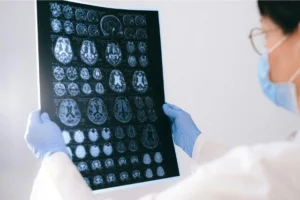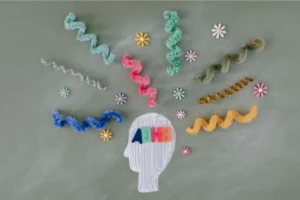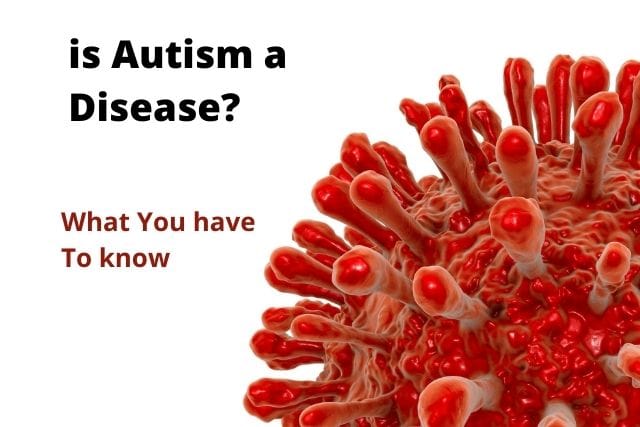Is Autism a disease?Autism is often misunderstood, with many people mistakenly referring to it as a disease. But what exactly is autism? Is it a disease? In this article, we will clarify what autism is, debunk common myths surrounding it, and reveal the truth about this neurodevelopmental condition. Let’s explore the facts and clear up the confusion.
Table of Contents
1. Is autism a disease? Understanding the Neurodevelopmental Condition
1.1 Autism Spectrum Disorder (ASD)
Autism is a complex neurodevelopmental condition that affects how individuals communicate, interact, and process information. It’s part of a broader category called Autism Spectrum Disorder (ASD), which means there is a wide range of symptoms and abilities across individuals. Autism is often diagnosed early in childhood, with signs typically appearing before the age of 3.
1.2 Autism as a Developmental Condition
People with autism may struggle with social interactions, have repetitive behaviors, or experience heightened sensitivity to sensory stimuli, but each person on the spectrum is unique. Some may have intellectual disabilities, while others may have average or above-average intelligence. The spectrum nature of autism means that some individuals require significant support, while others live independently and excel in certain areas of life.
1.3 Autism is Not a Disease
It’s important to note that autism is a neurodevelopmental condition, not a disease. Unlike diseases, which typically involve infections, degeneration, or physical harm, autism is a variation in how the brain develops and processes information. Autism is not caused by an infection, and it does not result in physical deterioration over time.
2. Why Some People Mistake Autism for a Disease
2.1 Lack of Awareness and Understanding
One of the main reasons autism is misunderstood as a disease is a general lack of awareness. In the past, autism was often seen as a mystery, with no clear understanding of its causes or its effects on the individual. Media portrayals of autism have often been limited and sometimes inaccurate, leading to confusion about what autism truly is.
2.2 The Stigma of “Mental Illness”
For many years, mental health and developmental conditions have been incorrectly grouped together with diseases. Society often uses the term “disease” to describe anything that deviates from the typical, which has led to harmful stigma. Autism, being a developmental condition that influences social behavior and communication, has sometimes been wrongly categorized as a form of mental illness or a disease.
2.3 Autism and Misdiagnosis: How Autism Is Sometimes Confused with Other Conditions
Autism shares symptoms with several other developmental conditions, which can further confuse people about its nature. For example, ADHD (Attention-Deficit/Hyperactivity Disorder) and sensory processing disorder (SPD) can look similar to autism in certain cases. Additionally, some individuals may receive an incorrect diagnosis, leading to misconceptions about autism being a disease. This highlights the importance of accurate, early diagnosis and a deeper understanding of autism.

3. Debunking Common Myths About Autism
3.1 Myth 1: Autism is Caused by Bad Parenting
One of the oldest and most harmful myths about autism is that it’s caused by bad parenting. This outdated belief stems from early psychological theories that blamed parents, particularly mothers, for their children’s developmental differences. However, modern research shows that autism is a neurobiological condition with genetic and neurological roots, but it is not caused by parenting styles. Genetics and environmental factors play a role in autism’s development, but bad parenting is not one of them.
3.2 Myth 2: People with Autism Can’t Lead Fulfilling Lives
Another pervasive myth is that people with autism cannot lead fulfilling, independent lives. While individuals with autism may face challenges, many go on to live happy, productive lives. People like Temple Grandin, an autism advocate and professor, and Greta Thunberg, an environmental activist, have shown that individuals on the autism spectrum can excel in their fields and make significant contributions to society. With the right support and understanding, individuals with autism can pursue careers, relationships, and personal goals just like anyone else.
3.3 Myth 3: All People with Autism Have the Same Symptoms
Autism is not a one-size-fits-all condition. In fact, one of the most important aspects of ASD is that it’s a spectrum. Some individuals may have significant communication and cognitive challenges, while others may exhibit very mild symptoms that don’t require extensive support. The variability within the spectrum means that each person with autism is unique, with different strengths and challenges.
4. The Truth About Autism: Embracing Neurodiversity
4.1 Autism is a Neurological Condition, Not a Disease
Autism is best understood as a difference in brain development and functioning. The condition involves differences in how the brain processes information, resulting in distinct ways of thinking, communicating, and interacting with others. Unlike diseases, which typically involve infections or degeneration, autism is simply a different way of experiencing and engaging with the world. Autism is not caused by pathogens or external infections and does not lead to a decline in health.
4.2 Neurodiversity: Why Embracing Differences Matters
The concept of neurodiversity emphasizes that neurological differences, including autism, are a natural variation in human diversity. Just as society has learned to appreciate racial, cultural, and gender diversity, we should embrace the diversity of human minds. Understanding that autism is part of this diversity can help create a more inclusive society where individuals on the spectrum are supported, celebrated, and given opportunities to thrive.

4.3 Support, Treatment, and Acceptance
While autism itself doesn’t require a “cure,” individuals on the spectrum can benefit from various forms of support. Early intervention, speech therapy, behavioral therapy, and social skills training can significantly improve the quality of life for individuals with autism. Acceptance from society—through education, workplace accommodations, and community support—is equally important. The key to unlocking the potential of individuals with autism lies in understanding and embracing their differences, not trying to “cure” them.
4.4 Promoting Awareness and Advocacy
Promoting autism awareness and advocacy is essential for creating a society that values neurodiversity. Organizations like Autism Speaks, The Autism Society, and the National Autism Association provide resources, support, and advocacy to ensure individuals with autism are understood and respected. Everyone can get involved—whether by supporting autism-related charities, participating in awareness campaigns, or simply learning more about the condition.
Conclusion: Moving Beyond the Myth of Autism as a Disease
In conclusion, it’s clear that autism is not a disease. It’s a neurodevelopmental condition that reflects differences in how the brain functions. Unlike diseases, which involve infections, degeneration, or physical harm, autism is a difference in brain function and structure. It is a natural variation in human development, and while it presents challenges, it is not something that deteriorates over time or requires a cure. Instead, autism is better understood as part of the broader spectrum of human diversity.
As we move forward, it’s important to continue debunking the myths and misconceptions that surround autism. By embracing neurodiversity, supporting individuals with autism, and promoting accurate understanding, we can help people on the spectrum live fulfilling lives and contribute to society in meaningful ways.
Discover our Article: Autism: A Complex Disorder Affecting Brain Development and Behavior
Call to Action:
If you’re interested in learning more about autism or getting involved in autism awareness, consider supporting organizations like the Autism Society or Autism Speaks. Share this article to help spread awareness and encourage accurate conversations about autism.
